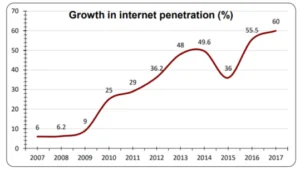Major players in the digital space– The tech start-up ecosystem in Philippines is yet to reach the level of success that has been achieved in leading ASEAN economies like Singapore and Indonesia. However, there are several promising young companies that are paving the way for increased innovation in the archipelago, and are, thus, inching the Philippines towards digital leadership. Some of the noteworthy technology start-ups in the Philippines are as follows:










